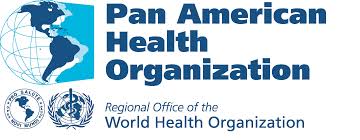The countries of the Caribbean are discussing the establishment of a unified registration process for generic medicines, in order to improve availability, quality, and access to essential medicines within countries. This measure would be adopted under the framework of the development and strengthening of a sub-regional drug regulatory system.
At a meeting this week in Kingston, Jamaica, representatives from the Pan American Health Organization/World Health Organization (PAHO/WHO), the Caribbean Community (CARICOM), the Caribbean Public Health Agency (CARPHA), and the Caribbean Technical Advisory Group on Pharmaceutical Policy (TECHPHARM) discussed setting up this registration process. Delegates from the national medicines regulatory agencies of Argentina (ANMAT) and the United States (FDA) also participated within the framework of support being provided to strengthen regulatory authorities within the Caribbean.
Creation of this subregional medicines registration process would support the development of a transparent and efficient regulatory system, examining eligibility criteria for product registration and supporting training of technical personnel to ensure medicine quality and safety in Caribbean countries. It would also improve post-marketing surveillance for medicines once products are authorized for sale on the market. At present, some countries in this subregion face important challenges in regulating medicines. In 2011 and 2012, only 44% of Caribbean countries reported having a national medicines registration process.
“Access to medicines and other safe, effective, and quality health technologies continues to be a challenge for many countries of the Americas,” said James Fitzgerald, Director of Health Systems and Services at PAHO. “A unified registration process will make it possible for all CARICOM countries to improve access to quality essential medicines and thus benefit the 16.7 million people who live in this subregion.”
The centralized medicines registration process under discussion by the Caribbean countries will focus initially on the WHO list of essential medicines, in particular on the registration of generic medicines for the treatment of noncommunicable diseases, as well as some other priority antibiotics. The idea is that the process be managed through an electronic platform to facilitate issue of a single common registration, at the same time promoting the exchange of information among CARICOM Member States. Decisions on whether or not to include specific products in the registry will in part depend on registration and marketing authorization status in third-party reference countries considered to be of reference, with well-established regulatory and post-marketing surveillance systems.
The creation of a unified medicines registration is one of the actions being discussed to strengthen the Caribbean drug regulatory system. In 2011, CARICOM adopted a pharmaceutical policy that called for the development of a regionwide regulatory framework to strengthen collaboration among the14 CARICOM Member States. In this regard, it was agreed to establish a Caribbean Regulatory System to support capacity building in the regulation of medicines.
With this system, the capacity of national drug regulatory authorities will be strengthened, through improved coordination and exchange of information among the countries of the Caribbean. The subregional regulatory system will also improve governance within pharmaceutical markets as well as access to information on medicines, in an effort to improve quality and safety of products in circulation in these countries.
CARICOM, CARPHA (through the subregional medicine testing laboratory), and the Caribbean Technical Advisory Group on Pharmaceutical Policy will play important roles in the establishment of the unified registration process and in development of the subregional drug regulatory system. (PAHO PR)














